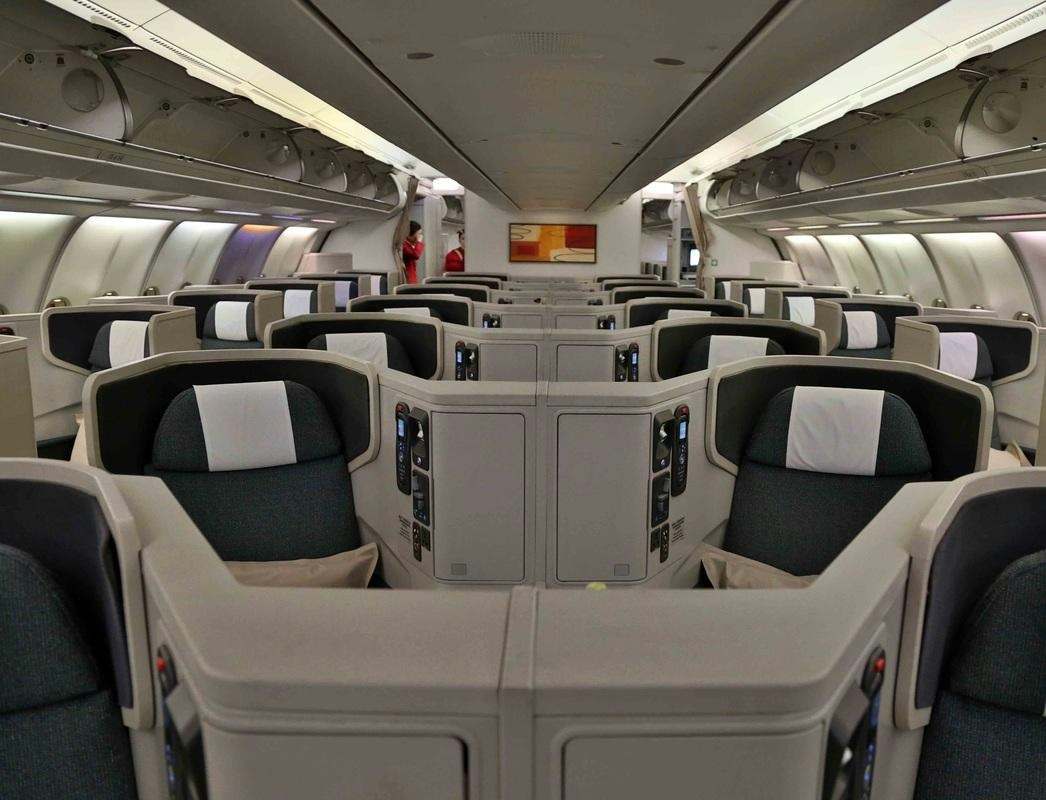AeroGenie — Your Intelligent Copilot.
Trending
Categories
Airbus and Cathay Invest $70 Million to Advance SAV Development

Airbus and Cathay Invest $70 Million to Advance Sustainable Aviation Fuel Development
Airbus and the Cathay Group have jointly committed up to US$70 million to accelerate the development of sustainable aviation fuel (SAF) across Asia and beyond. Announced at the IATA World Sustainability Symposium in Hong Kong, this partnership highlights both companies’ dedication to reducing the carbon footprint of air travel by scaling up cleaner fuel alternatives.
Strategic Partnership to Expand SAF Supply
The collaboration, formalized by Cathay’s Chief Operations and Service Delivery Officer Alex McGowan and Airbus President Asia-Pacific Anand Stanley, focuses on identifying and investing in key SAF projects that demonstrate strong commercial potential, technical readiness, and long-term production viability. Their shared objective is to significantly increase SAF supply by 2030 and beyond, addressing one of the aviation industry’s most pressing sustainability challenges.
Despite the promise of SAF, widespread adoption faces considerable obstacles. Securing reliable feedstock supplies and developing sufficient production capacity remain critical hurdles. Additionally, the sector must navigate complex regulatory frameworks and address the economic challenges posed by SAF’s higher cost compared to conventional jet fuel. Airbus and Cathay emphasize that expanding SAF production will require close collaboration across the entire aviation value chain, involving policymakers, investors, producers, and airlines.
Anand Stanley, President Asia-Pacific at Airbus, remarked, “This agreement reflects the shared commitment of Airbus and Cathay to make a real difference. The production and distribution of affordable SAF at scale requires an unprecedented cross-sectoral approach. Our partnership with Cathay is a concrete example of how we catalyse production in the most suitable locations to serve our customers.”
Regional Focus and Industry Implications
The partnership will also prioritize policy advocacy to support measures that encourage SAF production and adoption throughout Asia. The region’s abundant feedstock resources, growing technical expertise, and rapidly expanding aviation market position it as a pivotal player in the global transition toward sustainable air travel.
The announcement has already sparked increased investor interest in SAF projects and may influence airline strategies toward more sustainable operations. Other major carriers, including American Airlines, Alaska Airlines, Japan Airlines, and Singapore Airlines, have similarly intensified investments in SAF technologies, signaling a broader industry commitment to decarbonization.
Cathay’s strategic emphasis on larger aircraft such as the Boeing 777-9 and Airbus A350, rather than regional jets, distinguishes its approach from some competitors. This focus on wide-body aircraft could shape market dynamics as airlines balance sustainability objectives with operational requirements.
The partnership between Airbus and Cathay dates back to 1989, when Cathay placed its first Airbus order. Today, Cathay operates 86 Airbus aircraft and has more than 70 additional planes on order, underscoring a long-standing relationship as both companies collaborate to foster a more sustainable future for aviation.

Emirates Unveils Cabin Design for New Boeing 777X

Eighteen Years On, the Airbus A380 Remains Central to a $34 Billion Airline

How a boom in luxury airline seats is slowing down jet deliveries

Navitaire Outage Attributed to Planned Maintenance

DigiYatra Debuts Outside Aviation at India AI Impact Summit

Vietnam Orders Strengthen Boeing’s Commercial Outlook

Airbus Signals Uncertainty Over Future A400M Orders

JobsOhio Awards $2 Million Grant to Hartzell Propeller for Innovation Center

Collins Aerospace Tests Sidekick Autonomy Software on YFQ-42A for U.S. Air Force CCA Program

How the Airbus A350-1000 Compares to the Boeing 777
